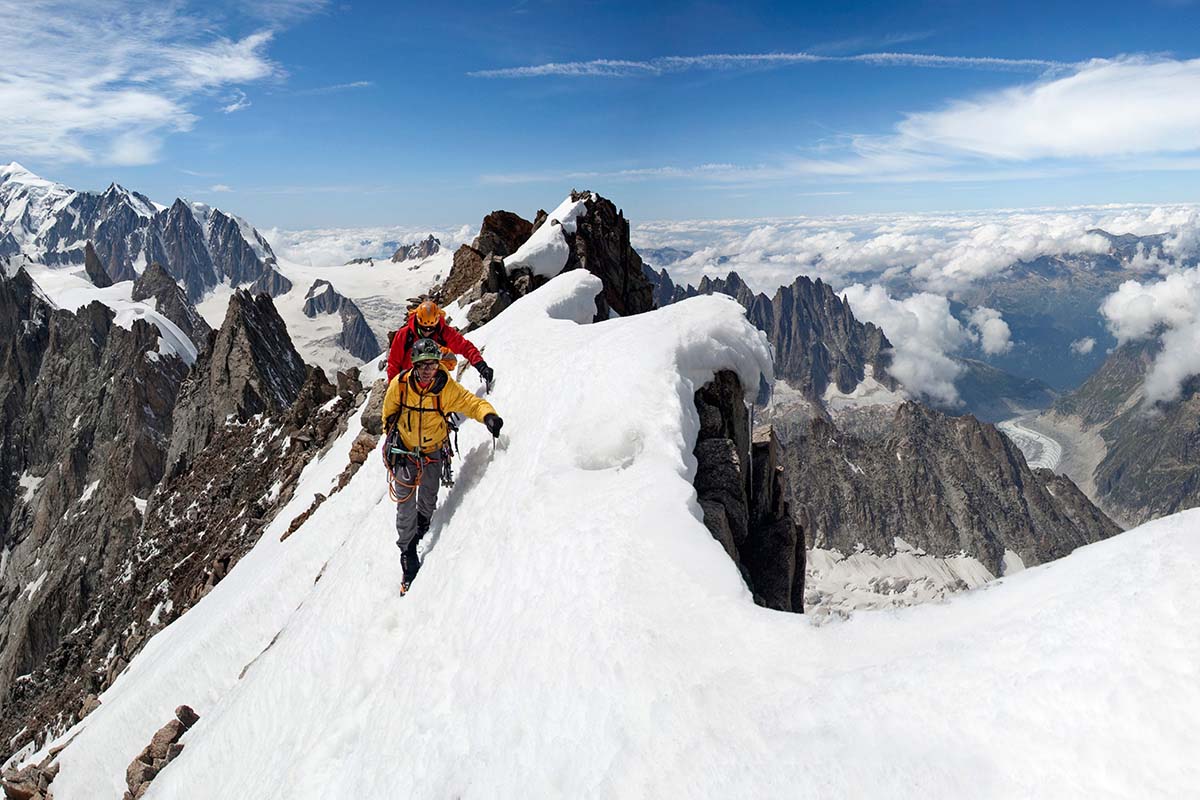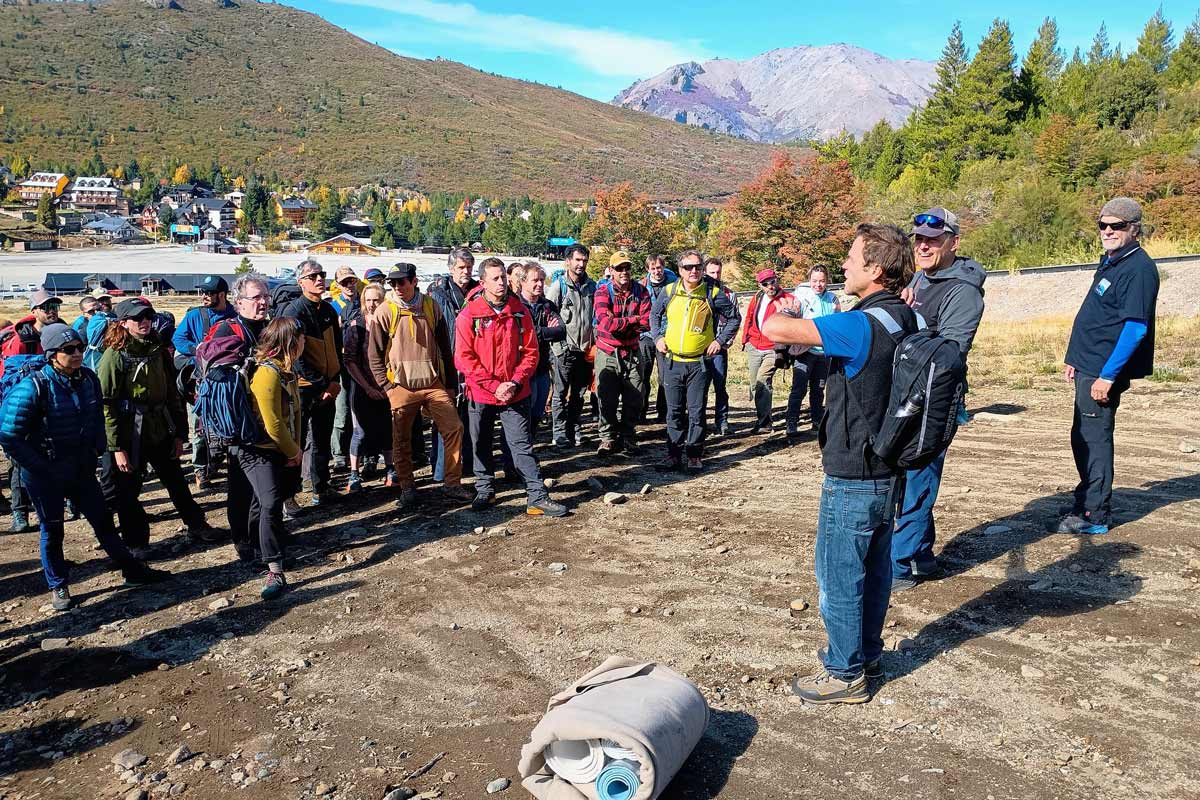The latest extract from the UIAA Alpine Summer Skills Handbook focuses on gear requirements for single and multi-pitch climbing and features as part of a chapter dedicated to Equipment.
In climbing, safety starts with choosing the right equipment. Knowing the difference between a double rope and a twin rope, knowing how to use the various types of carabiners, and tying a reliable knot are all part of a climbing leader’s knowledge base. Climbers rely heavily on their gear, and should maintain and store it with care. When purchasing climbing equipment, the UIAA advises ensuring equipment bears the UIAA Safety Label. The UIAA label on a piece of mountaineering or climbing equipment attests it to be of the highest international standards for safety having met the requirements of the relevant UIAA standard. Details on the types of equipment tested for the UIAA Safety Label can be found here. A list of UIAA certified climbing gear can be found here.
Below is a guideline on equipment required for single-pitch and multi-pitch climbing.
For single-pitch climbing
√ Helmet
√ Harness
√ 12 to 14 quickdraws
√ Traditional, assisted-braking, or plaquette-style belay device (see sections 3.2 and 3.3 of Handbook)
√ Climbing rope (60 to 80 meters)
√ Locking carabiners
√ Removable protection: nuts, cams, etc. (if necessary)
√ Nut tool
√ Climbing shoes
√ Chalk bag
√ Water
√ First-aid kit
For multi-pitch climbing
√ Helmet
√ Sunglasses
√ Harness
√ 12 to 14 quickdraws
√ 3 to 5 slings (60 and 120 cm)
√ 3 to 5 carabiners
√ Traditional, assisted-braking, or plaquette-style belay device (see sections 3.2 and 3.3 of Handbook)
√ 60-to-80-meter double or twin rope (or two 50 meter ropes, check the topo)
√ 1 friction hitch (cordage)
√ 1 mechanical ascender (Tibloc or Ropeman)
√ 4 locking carabiners
√ Removable protection : nuts, cams,etc. (if necessary)
√ Nut tool
√ Gear sling (if necessary)
√ Climbing shoes
√ Chalk bag
√ Water, beverage
√ Knife
√ Light backpack (20-liter)
√ Energy snacks
√ Light windbreaker
√ Headlamp
√ Small first-aid kit
√ Topo, map
Please note:
Before using any kind of technical gear, you must first:
– read and understand all instructions for use;
– get specific training in its proper use;
– become acquainted with its capabilities and limitations;
– understand and accept the risks involved.
Failure to heed any of these warnings may result in severe injury or death.
–
This article is an extract from the Climbing/Equipment chapter of the UIAA Alpine Skills Summer handbook. The handbook is a compendium of the essential skills one must acquire in order to become a hiking, climbing or mountaineering leader. The purpose of the handbook is to present tried-and-true techniques that can be learned and mastered only through formal training. The entire guide is now available to purchase as a digital download. To purchase the guide please click here.
Previous extracts from the Guide can be found on our dedicated Skills page.
Main photo: Monica Dalmasso
About the UIAA Alpine Skills Summer Guide
The UIAA Alpine Skills Summer guide was first published in 2015. Produced in collaboration with the Petzl Foundation, the guide and has been well received worldwide and is currently available in five languages. To mark the launch of a digital version of the publication, the UIAA is running a series of articles from the guide designed to help hikers, climbers and mountaineers develop their skills and knowledge of the mountain environment.
The guide was developed specifically as a reference document for trip leaders and instructors of club and federations within the UIAA – an aide memoire for climbers and mountaineers who attend training courses delivered by instructors and guides who have gained qualifications accredited by the UIAA. Now open to the wider climbing and mountaineering world, the handbook’s four modules focus primarily on summer activities. However, a specific winter guide is currently in production.




